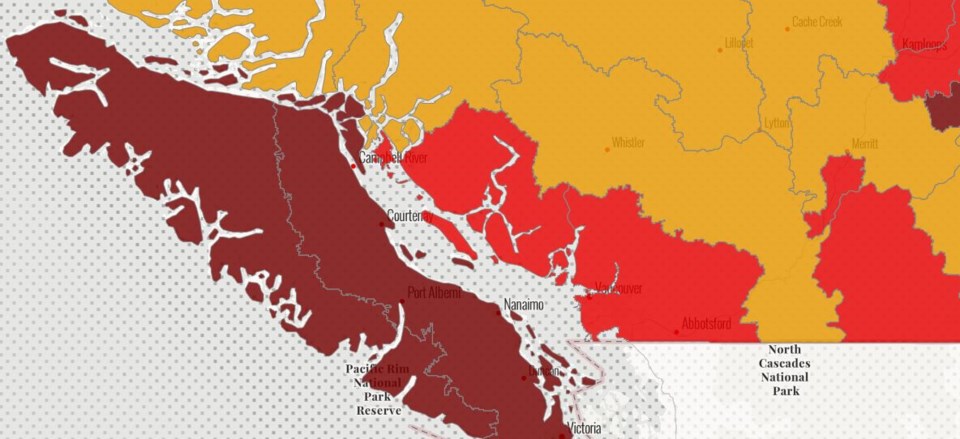“We know we are in a climate emergency…this is our asteroid, so we need to make some decisions.” That was Sechelt area director Darren Inkster’s statement on the need for area residents and Sunshine Coast Regional District (SCRD) board members to focus on changing local water use behaviours. His view: increased conservation is a necessity as an already changed climate will mean continued drought in our area.
Committee chair and Gibsons area director Silas White ranked Inkster’s observation which followed the July 27 SCRD committee meeting staff water update as a “mic drop” moment.
'Terrifying' water use levels
The second July update on the state of the regional district’s water systems, delivered by staffer Shane Walkey, showed continued high residential water usage. In June, average home water demand in the SCRD’s South Pender system was double (1,183 litres per day) the levels recorded that same month the previous year. Throughout all SCRD water systems, average daily residential water use in June was 1.5 times higher (1,025 litres per day) than the demands experienced during that month in 2022.
In her response to that report, Area B director Justine Gabias characterized those usage levels as "terrifying."
Water demands discussion saw White and Inkster point to public “frustrations" that they said were affecting how residents feel about the water situation and how that may be leading to a disconnect when it comes to their water use. Both noted tones of exasperation in their readings of media postings on the matter with many entries levying criticism at the SCRD about its management of the region's water resources. They expressed views that the board needs step up messaging in order to shift the public energies from “blaming” and towards making every effort to ensure Coast communities make it through the 2023 dry season with water supplies for essential uses.
Staff at the meeting welcomed board input on water-related communications.“We [the board] all need to work on getting the word out, how can we help?” White asked.
Getting the message out
White's suggestion was communications highlighting the example of the Town of Gibsons where restrictions remain at Stage 1 and residential water use “well below” the 1,000 litres per day mark per household.
Moving the recently launched website graphic showing remaining water storage levels at Chapman Lake (at 86 per cent as of July 25) to the SCRD website landing page was suggested by Gabias. That change was made by the afternoon of July 28. She said it “would be very impactful” to have that information as the first detail seen on the regional district’s website, and would show the importance the board is placing on the state of remaining lake storage and the need for conservation of local water supplies.
Area D director Kelly Backs said he has and will continued to include “water conservation tips” in his constituency newsletter. He stated that reducing water demands “is the only thing that is going to turn [water shortages] around for us."
The approach of having SCRD staff engage with residents at public events was the messaging approach favoured by Area A director Leonard Lee. He encouraged staff to consider more of those, and to do so in cooperation with area fire departments, groups that share concerns about dwindling water supplies. He viewed such conversations with individuals on key water use reduction practices as having the most impact. In some cases, he said residents leave those encounters as “self-proclaimed experts” who then share what they have learned about water conservation with others.



